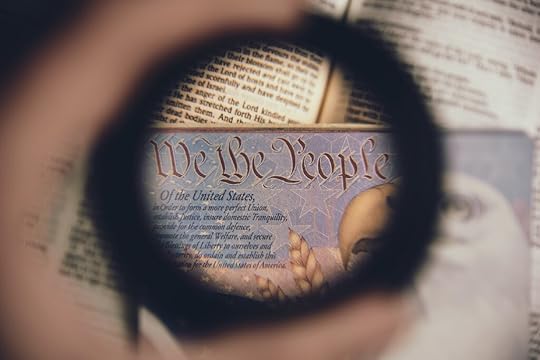Who are “We the People?”
Who are “We the People?”

The only way you can effectively test or measure a nation’s moral compass is through an evaluation of its people. Every person does not hold to the same values, belief system, political ideology, and experiences. There is no denying that throughout our nation’s history, we have been confronted with innumerable differences, strife, protests, and injustices. The language of the 2016 presidential campaign helped sow the seeds of discord and division and elevated it. The rhetoric exhibited by the presidential candidates from the 2016 campaign was a spectacle-featuring landmine-like commentary, and name calling unlike any campaign many have witnessed in their lifetimes. As a result, “We the People”, are now hard-pressed to achieve some semblance of reconciliation. What it will take is a truthful and candid admission that we do not like who we have become and how far we have deviated from the values, vision and mission that was designed to distinguish us from every other country in the world. I remember my father telling me over and over again, “America is not perfect. There are a lot of problems in this country. However, this is the greatest country in the world.”
Today we view and limit our understanding of the value of our country through the rose colored lenses of patriotism and those we elect. This less than stellar representation should never be the reflection of our nation’s identity and values. It is unfortunate that elected officials who seek public office in the United States are generally viewed as being more concerned about undermining the effectiveness of their opposition, protecting their turf, and gaining tactical advantages and leverage to serve their own interests.
A career in politics is not for the faint of heart. It is not a livelihood or professional area of life which engenders respect or appreciation from the general public. Americans have become indifferent to the current political landscape and the representations of those who run or serve in public office. In the 2016 presidential election, an estimated 58% of eligible voters participated, in comparison to 60% in 2012. In both election cycles, less than two-thirds of eligible voters voted for the highest office in the land. What may discourage American citizens from participating in a process which by design epitomizes the mandate of our Preamble, are numerous and debatable. However, is not difficult to discern that Americans are disheartened and believe that public officials pursue their own interests at the expense of the public they take an oath to serve. This belief is widespread among the general public. In a 2014 Gallup News poll, 75% of Americans polled perceived corruption is widespread throughout the United States government.[1] In 2017, it was 67% of Americans.[2] In a national survey conducted by Rasmussen Reports, 81% believed the federal government is corrupt.[3] The perception among Americans is our elected officials lack integrity. Elected officials do not have the trust of its citizens. When trust is compromised, it is very difficult, if not impossible to regain it. A loss of trust in one’s government causes citizens of a country to shut down, protect and hide one’s vulnerabilities.[4] We become fearful, and resist being accountable to our neighbors, and our country. It is clear the loss of trust has discouraged and turned us away from aspects of life we once respected and honored.
“We the People. . .” have become disinterested and indifferent to the active roles we are designed to play in our nation’s system of governance. Our fixation is too often on the reported turmoil, angst and conflict. We feed the turmoil by watching, arguing and debating points of contention with our neighbors, family and friends about who is right and who is wrong. If we allow a “discussion” about political parties and candidates to permeate our fears, angsts and anxieties, divisiveness reigns. The Preamble is a very short and simple to understand. However, it offers our nation a guiding light into of who and what our nation is purposed to become, without exception. Our individual and collective framework for decision-making must be driven by the logic, reason, compassion and mercy necessary to achieve its mandate. If we continue to measure ourselves by those who dishonor the words of the Preamble, we will continue to see it as a laudable, yet unattainable.
When “We the people”, are entrusted with the responsibility of exhibiting leadership, refuse to boldly address or condemn divisiveness, we embolden those who commit them. Subsequently, our ability to see and analyze issues objectively and thoroughly is compromised by the onslaught of unrestrained anger, and rage we see depicted through the media, and in our communities. Our emotions are inextricably linked to our politics, and faith based beliefs, and when left unregulated, tends to incite misunderstandings, and prejudices, which leads to outcomes and conclusions that are contrary to the truth, and justice.
[1] Gallup News, September 19, 2015
[2] Gallup News, September 19, 2015
[3] Rasmussen Reports, February 3, 2016
[4] Kashtan, Miki, Some thoughts about trust. Pyschology Today, 8/31/12
[image error]


